Mikhail Gorbachev’s legacy: changing the map of Europe forever
A sure sign that Mikhail Gorbachev changed the world for the better is that Russian dictator Vladimir Putin calls his legacy ‘the greatest geopolitical catastrophe’ of the 20th century.
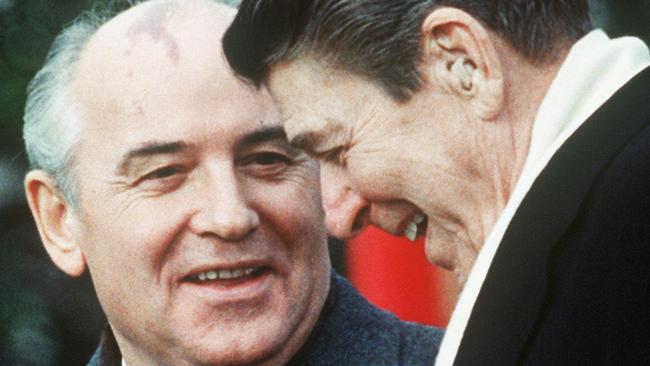
A sure sign that Mikhail Gorbachev changed the world for the better is that Russian dictator Vladimir Putin calls his legacy “the greatest geopolitical catastrophe” of the 20th century.
Gorbachev, the last leader of the communist Soviet Union and the architect of its demise, tilted the map of Europe inexorably towards freedom despite Putin’s failed attempts to turn back the clock in Ukraine.
For a generation of Australians, Gorbachev, who has died aged 91, was an unlikely beacon of hope after decades of Cold War tension, fears of nuclear armageddon and spy games in Canberra. We watched, jaws agape, as the Berlin Wall was torn down in 1989 as part of the domino-like collapse of the Soviet Empire that followed on from Gorbachev’s bold reforms of glasnost and perestroika, or openness and restructuring.
To the rest of the world, Gorbachev was a stunning contrast to the old hardline Soviet leaders who preceded him, such as Brezhnev, Andropov and Chernenko.
Pictures of the Soviet leader with US president Ronald Reagan, smiling together, signalled the end of the enmity that had dominated global politics for decades.
He was no grey party apparatchik but rather a communist who chose to break the communist economic system and deliver freedom and openness to his people, creating an unstoppable whirlwind that eventually broke the Soviet empire apart.
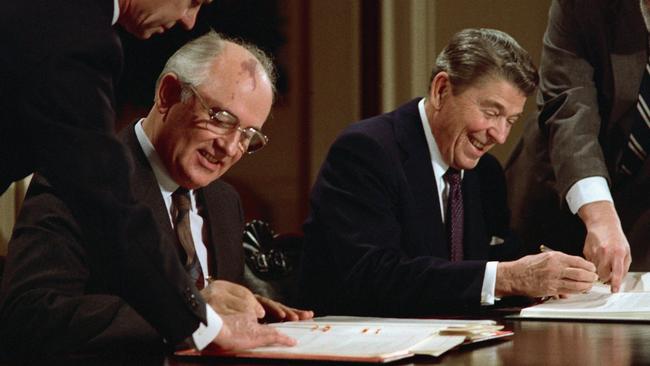
In just six years as leader, from 1985 to 1991, Gorbachev lifted the Iron Curtain and transformed global politics, winning a Nobel Peace prize in 1990.
Amid a sea of tributes from around the world, Anthony Albanese said: “Mikhail Gorbachev changed the world for the better. As the leader of the Soviet Union, he brought openness to a closed society with his policy of glasnost.
“He freed the nations of Eastern Europe from the prison of Soviet rule …(and) ultimately, he lifted a great shadow that lay across humanity. With his death, we have lost one of the true giants of the 20th century.”
Former prime minister Paul Keating said of Gorbachev: “Only he had the intellectual understanding of the pointlessness of the Cold War.”
US president Joe Biden described Gorbachev as a “rare leader” who had made the world safer.
“These were the acts of a rare leader – one with the imagination to see that a different future was possible and the courage to risk his entire career to achieve it,” he said in a statement. “The result was a safer world and a greater freedom for millions of people.”
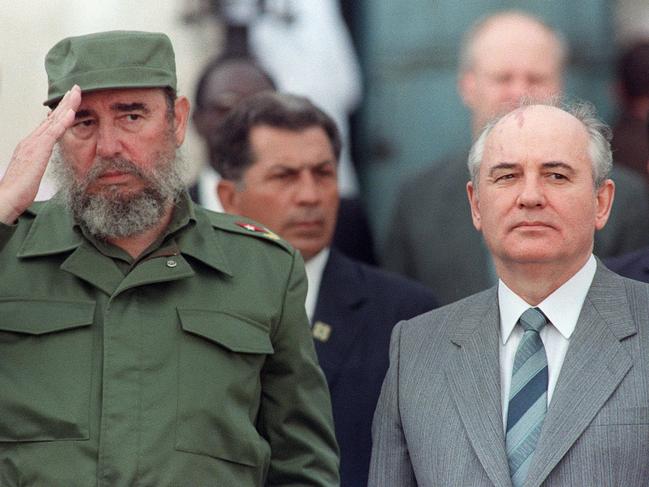
British prime minister Boris Johnson said Gorbachev’s achievements were in sharp contrast with the aggression shown by Putin in Ukraine. “In a time of Putin’s aggression in Ukraine, his tireless commitment to opening up Soviet society remains an example to us all,” he said.
Yet while Gorbachev was loved around the world for his dismantling of the Soviet empire, he was never embraced back home in Russia. Hardline communists and others, including former KGB agent Putin, saw the collapse of the Soviet Union as a moment of shame and a historic defeat for dreams of a greater Russia. Suddenly Russia was no longer a superpower but just another European nation. Progressive liberals in Russia also came to criticise Gorbachev when the collapse of the Soviet Union ushered in years of economic chaos and uncertainty as the country stumbled in its transition from a communist economy towards a free-market system.
But internationally, Gorbachev was feted both while he was in power and afterwards. The staunchly anti-communist British leader Margaret Thatcher and Reagan realised early on that Gorbachev was a very different kind of Soviet leader, one who Thatcher said she could “do business” with.
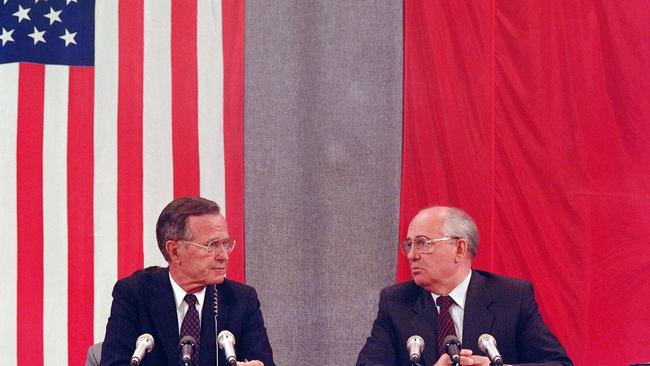
Gorbachev reduced tensions with the West through a series of nuclear disarmament agreements and by withdrawing Soviet troops from Afghanistan.
He gave greater freedom to Soviet satellite states in eastern Europe, a freedom that later became impossible to reverse. Though he is hailed in the West for dismantling the Soviet Union, it was not his intention that his policies would lead to that extreme outcome. But the reforms and the freedoms that he bestowed on his people become an unstoppable force. Crucially, Gorbachev chose to preside peacefully over that break-up rather than use force to try to stop it or reverse it.
A failed coup against Gorbachev in 1991 led several months later to his resignation as the leader on communist Russia, a day before the USSR was formally dissolved on December 26, 1991.
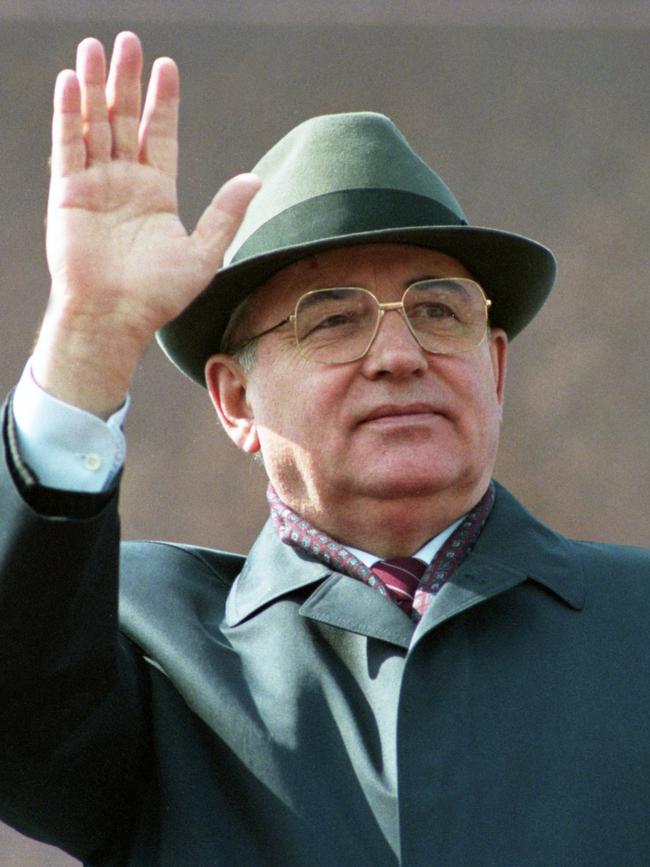
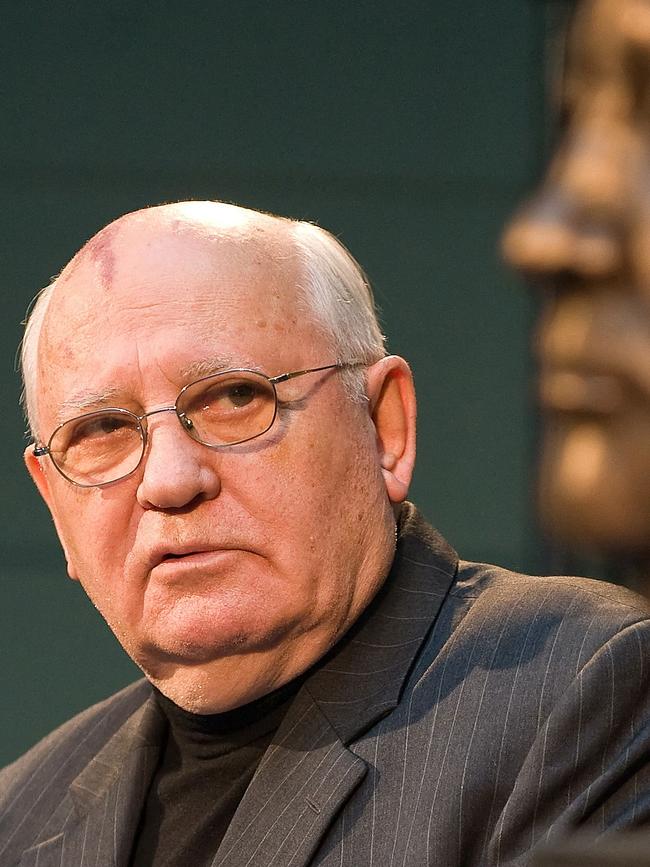
After he left office, Gorbachev travelled widely in the West, writing and giving speeches and being feted by world leaders and dignitaries. But when he was in Russia, his unpopularity saw him largely sidelined from political debate. He watched, often in silence, as Putin progressively stripped away the social, political and economic freedoms that Gorbachev had given to the Russian people.
The map of Europe has been permanently changed because of Gorbachev’s leadership. In 1987, when Reagan famously called on him in Berlin to “tear down this wall”, few people imagined that it would happen. But it did. That is Gorbachev’s legacy.


To join the conversation, please log in. Don't have an account? Register
Join the conversation, you are commenting as Logout